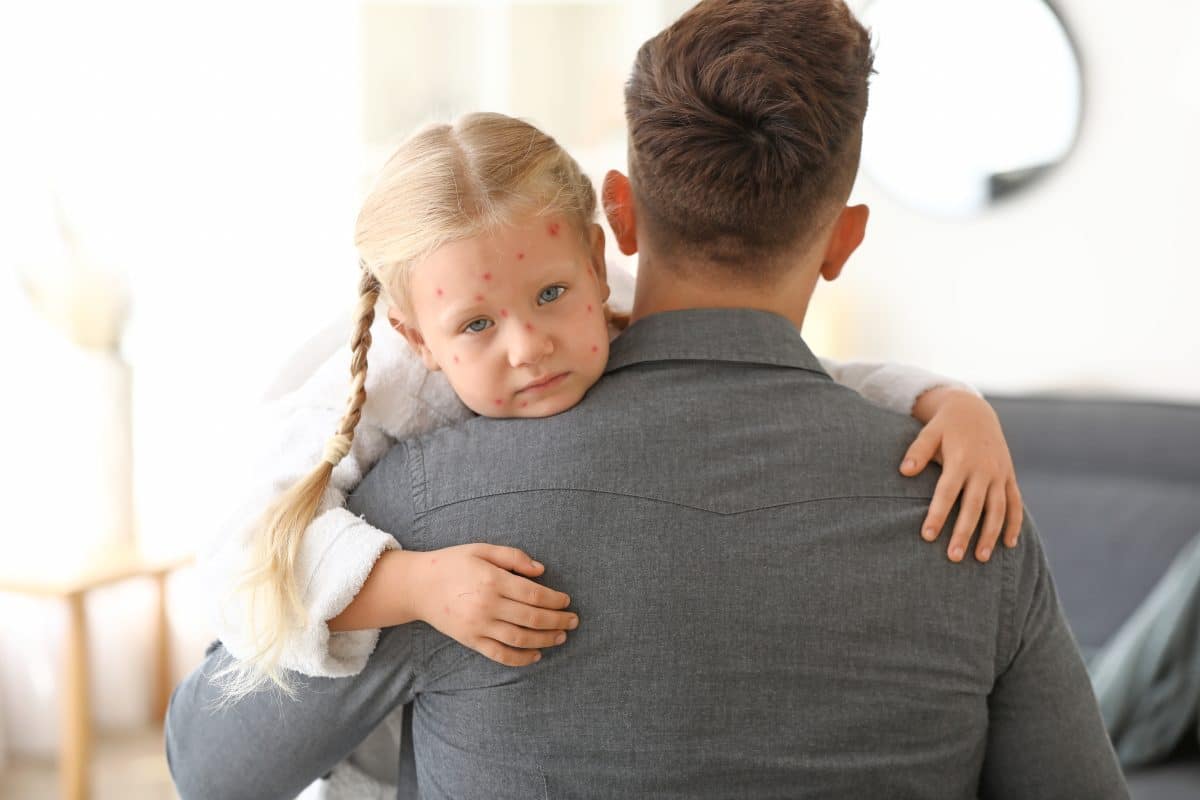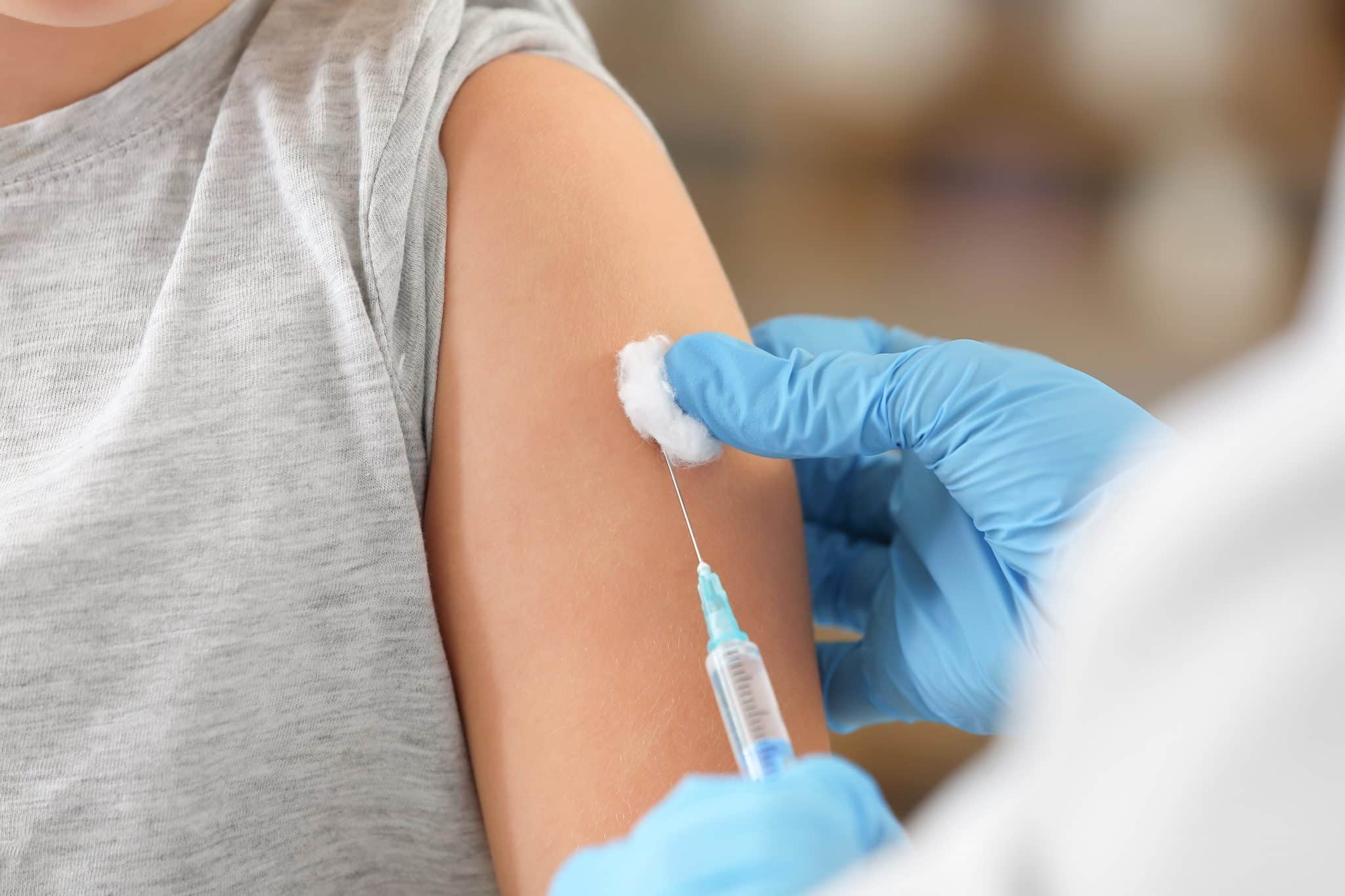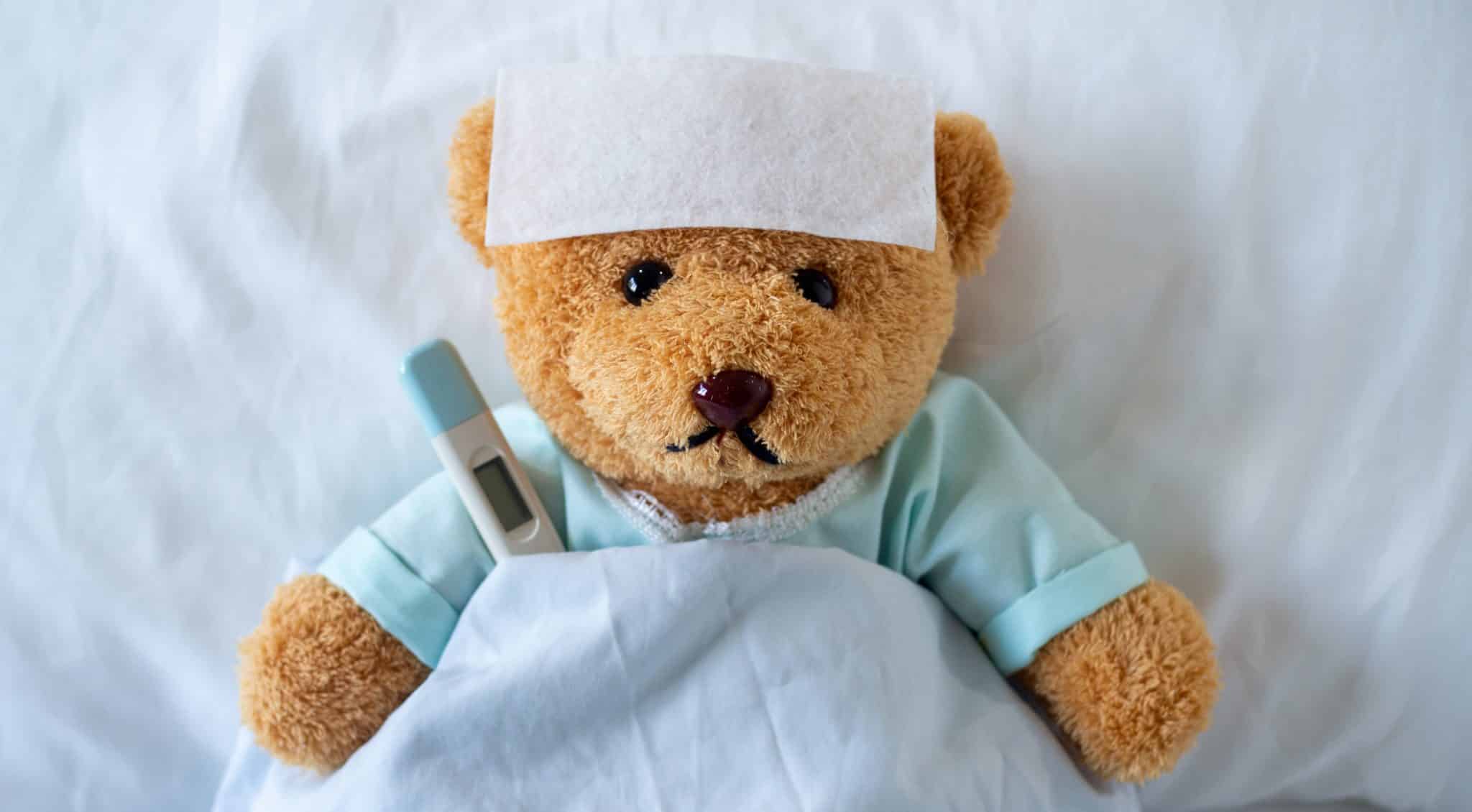Varicella Vaccine Side Effects

Most parents want their children to grow up happy, healthy, and well-adjusted. Part of that process is making sure that you keep them up to date on their childhood vaccinations.
Vaccines have come a long way in safety, effectiveness, and quality. In fact, we can remember a time when there was no vaccine for certain childhood illnesses, like polio and varicella (chickenpox). Luckily, we don’t have to worry about that anymore.
Like most things in life, vaccines can come with their share of pesky side effects, and this includes the chickenpox vaccine.
Read on for more information about varicella, varicella vaccine side effects, and why it’s important that your child receives their timely vaccination.
What is Varicella (Chickenpox)?
Chickenpox is a virus that mostly affects children. It starts out as a typical cold with a runny nose, fever, sore throat, and fatigue. Around 2 days after that is when the tell-tale rash appears. The rash begins as papules, become blisters, erupt, and then scab over.
This virus is able to spread through close contact with someone who is infected (even if they don’t know it yet) via droplets. These can be expelled by coughing, sneezing, or droplet to hand transmission. It can also be spread by direct contact with the rash.
While varicella is generally a mild infection, it can lead to more serious symptoms. This is especially true for immunocompromised, pregnant women, or adults who have never had chickenpox.
Severe complications include:
- Skin infections
- Pneumonia (mainly in adults)
- Sepsis
- Dehydration
- Hepatitis (this is an extremely rare complication)
- Encephalitis (also a very rare complication)
Varicella Vaccine Benefits
The varicella vaccine is both safe and effective.
The benefits of the varicella vaccine are robust. It can completely prevent an active case of chickenpox should your child come in contact with an infected person. It also helps to prevent hospitalizations due to the severe complications we mentioned above.
Some studies have emerged about another benefit as well. It seems that getting the varicella vaccine cuts chances of shingles later in life by half.
Side Effects of the Varicella Vaccine
Just like all childhood vaccines, the varicella vaccine comes with its own share of side effects. But it’s important to mention that this vaccine has been tested for its safety and effectiveness and the side effects are miniscule compared to the potential dangerous effects of catching chicken pox.
Side effects include:
- Localized pain
- Redness at injection side
- Injection site lump (this will go away and does not need special care)
- Fever
There is a very small chance that other adverse effects could be seen:
- Chicken pox-like symptoms or rash
- Anaphylaxis
For your child’s safety, they will remain in the office for 15 minutes to ensure they are not going to have a severe reaction to the vaccination.
Who Needs a Chickenpox Vaccine?
Your child will receive two varicella vaccines. The first is administered at 12 months of age and the second is given when they turn 4 years old. The vaccine is a live, but weakened immunization. This means that a very small amount of children (around 2%) will develop a very mild case of chickenpox. It does not run the same risk as catching the virus, so no need to worry.
If you’re an adult that has never had exposure to the virus, you may want to look into getting yourself vaccinated.
There are also people who should not get the varicella vaccination, including immunocompromised individuals and pregnant women. This is why anyone who can, should get the vaccine to protect others around them.
Always speak to your doctor or pediatrician about whether certain vaccines are right for you and your child.
How To Treat Vaccine Side Effects
Your pediatrician will likely have given you a list of possible vaccine side effects and what to do about them. If not, you can treat side effects just like a normal illness.
For pain at the injection site, feel free to use a cool cloth, calamine lotion for itching, and gentle massage of the muscle. In children with fevers, acetaminophen may make them feel more comfortable.
Remember, occasional minor vaccine side effects are expected and can actually be considered a good thing. It means that your child’s immune system is doing what it is supposed to. Their body is building immunity to a nasty infection in order to prevent illness.
Conclusion
While chickenpox used to be considered a typical childhood illness, nowadays your child doesn’t have to go through the fever, itchy rash, and malaise that comes with it.
Now there is a safe and effective way to prevent varicella with a vaccine.
Catching chickenpox is far more dangerous than the potential side effects of the vaccine, and if your child is not immunocompromised or has never had an allergic reaction to a vaccination, it will be recommended to schedule them for their first one at 12 months.
At Kid Care Pediatrics, we are happy to go over any concerns you have about vaccines and their side effects. Book an appointment today.
Kid Care Pediatrics
Kid Care Pediatrics has been in existence since October 2001. It was established by Omar A. Gomez, M.D. The practice philosophy at Kid Care Pediatrics is to provide quality pediatric medical care for children in a professional yet caring manner.


